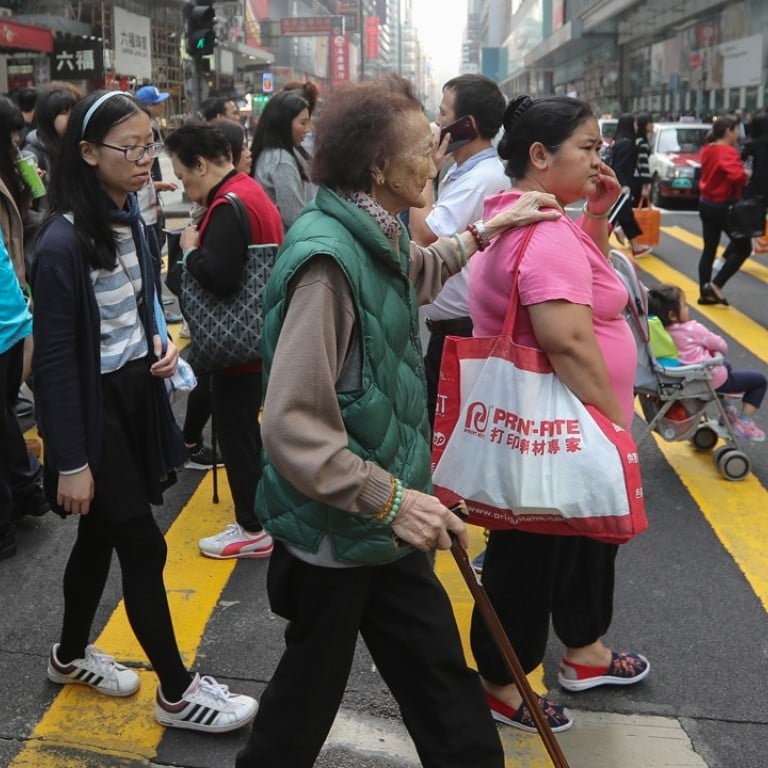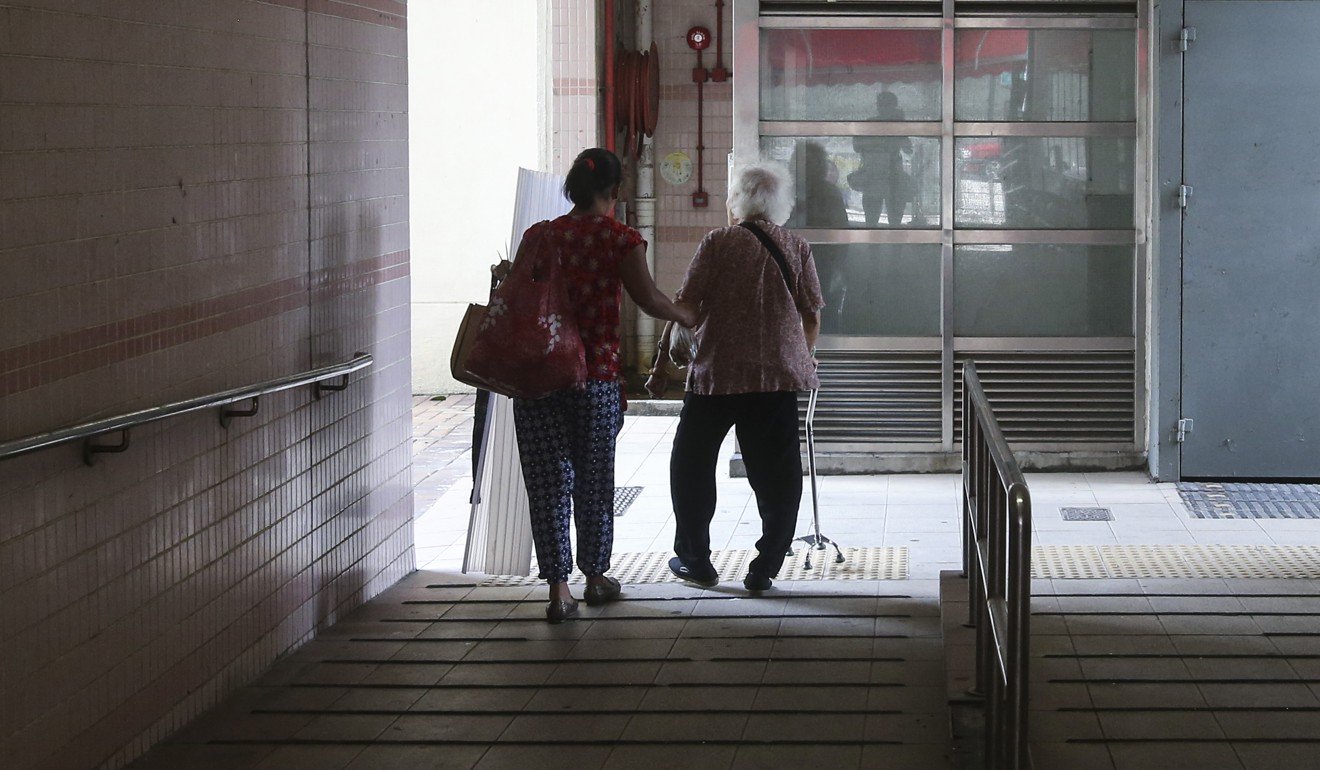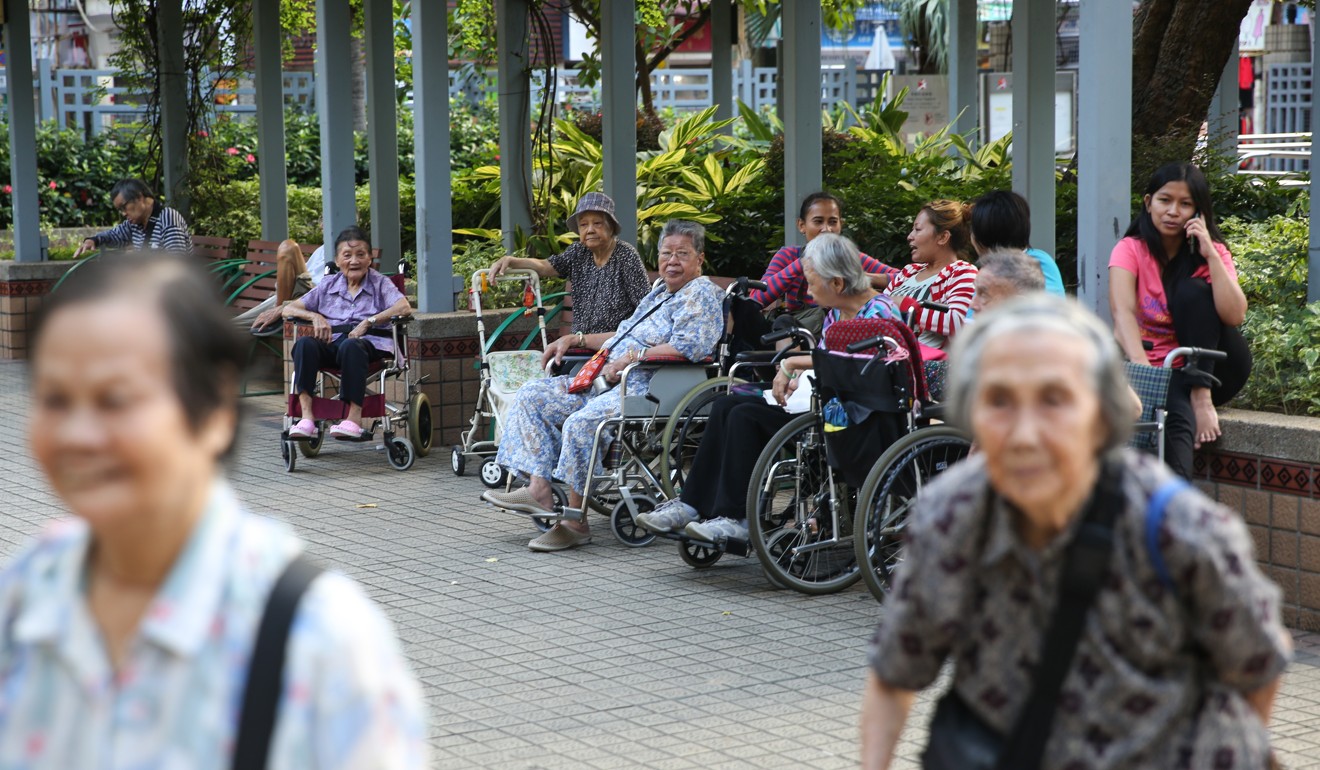
Who cares for the carers? Third killing this year raises alarm in Hong Kong
After man thought to have killed elderly mother before his own attempted suicide, scrutiny falls on government policy and oversubscribed services
On a good night, Mrs Yu, 70, can get about three full hours of sleep.
That’s if her husband, 75, who suffered a debilitating stroke in 2007, manages to get through the night without soiling himself or crying in pain from backache.
“I can only sleep at about 3am and must wake up around 5am or 6am,” she said. “You’re tired but you just can’t sleep. He’s hungry, his back might hurt, you need to turn him around to massage him. Before you know it, it’s time for his breakfast.”
But he doesn’t eat like normal people, she sighs. He can take up to two hours to eat, and needs to be fed. “He’ll eat and cry. For a carer like me, it’s really painful to hear that,” she said.
“It’s a lot – a lot – of pressure. No one can imagine.”
To calm her nerves, she takes showers. If that fails, she turns to her antidepressants.
Yu is one of Hong Kong’s many at-home carers.

She was one of a few who called public broadcaster RTHK to share her plight on Tuesday, in light of a horrific case on Sunday in which a 34-year-old man with a mental condition was suspected of murdering his bedridden mother before jumping off a building in what was believed to be a failed suicide attempt.
He was a psychiatric patient and received his last consultation 11 days before the killing. An investigation found he set up a property management company with friends in 2011, but had to turn his focus to taking care of his sick mother.
The murder, the third this year in which a carer has been involved, has highlighted the poor community support for the city’s carers.
In February, a man was believed to have strangled his 56-year-old wife, who had dementia, with a belt at home before killing himself. And in June, an 80-year-old man was arrested on suspicion of killing his chronically ill, disabled wife in a bid to end her suffering.

“The biggest concern after this incident is whether carers are being provided sufficient care,” Shiu Ka-chun, who represents the social welfare sector in the Legislative Council, said on the RTHK programme.
“We have neglected carers and not provided them with proper policy support.”
Shiu said this means carers were akin to “lone wolves”, toughing it out in the wilderness.
“And when something goes wrong, they will be blamed and we’ll say there was something wrong with their mental health.”
He said that apart from long wait times for subsidised elderly care centres – 36 months at least – demand was severely outstripping the supply of day care centres, doctors, care workers, caterers and cleaners in the sector. And private care services tend to be substandard, he said.
“The government really lacks a policy and cannot keep up with this growing demand,” said Cheung Nga-lam of the Concerning Home Care Service Alliance, a concern group covering elderly care services. He said it was hard to find well-equipped day care services, which could absorb some of the pressure on homes.
Will increased community support solve Hong Kong’s strained elderly care services?
By the end of August, more than 3,700 elderly residents judged fragile enough for a place at a community day care centre were waiting for a spot to open up, according to the Social Welfare Department. The average wait was 11 months.
Even if there were vacancies, centres may lack pickup and drop-off services, making it hard for anyone who lives far away or whose family members need to work.
“The process is very depressing and you just don’t know how many centres you have to call before you get a [favourable] outcome,” Cheung said.

There was money available to help carers financially, but it is not always easily accessible, Shiu said. The government’s Community Care Fund, for example, has a two-year pilot scheme providing poor carers of people with disabilities with a monthly allowance of HK$2,000.
“But there are like 90,000 things they have to be assessed for and there’s a small quota of about 2,000,” Shiu added.
He said in many other developed countries, governments recognise carers as people who help reduce the burden on the public coffers, and give them status and support.
On Monday, the city’s chief secretary, Matthew Cheung Kin-chung, said the government would strengthen its elderly care services – helping people stay in their own homes and increasing the number of places at elderly centres.
He also promised to enhance short-term residential care services for the elderly, which aim to relieve pressure on family members.

